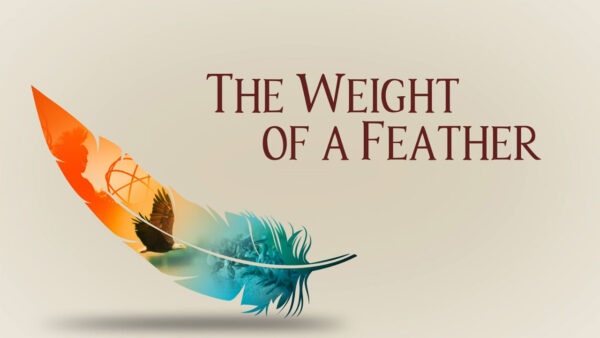American Experience ‘Abraham and Mary Lincoln: A House Divided’
June 20, 2011
-Airs Monday, June 20, June 27, July 11, July 18, July 25, and August 1, 2011 ON Eight.-
In 1882 Mary Todd Lincoln was an old woman living on a hill on the outskirts of Springfield, Illinois. She kept the curtains drawn, never went outside, and never received visitors. Neighborhood children pointed up at her window and hurried past, frightened by "the crazy lady" in the upstairs room.
Forty years before in the parlor of the same house, Mary had married a tall, awkward lawyer; she still wore his ring, inscribed with the words, "Love is eternal." At the time she was an aristocratic southerner, he a backwoods politician. She had once said of her future husband: "He is to be president of the United States some day; if I had not thought so I never would have married him, for you can see he is not pretty." Her husband was elected president, a president who has become more central to America's image of itself than any chief executive before or after him. "Self-made man," "savior of the union," the "great emancipator" – his life has been swept up into the nation's mythology.
More has been written about Abraham Lincoln than any other American, and yet the wife who helped him rise to power and complicated his life once he got there remains little known. Abraham and Mary Lincoln: A House Divided, airing in six parts June 20, June 27, July 11, July 18, July 25, and August 1, 2011, on American Experience at 10 p.m. on Eight, is the first film to focus on their marriage. It follows the couple from their strikingly different childhoods to their years in the White House. It uncovers their public ambitions and their private fears. It paints a vivid picture of a troubled marriage, of a couple who loved each other passionately, who quarreled intensely, and who frequently mourned. And it describes the impact of Lincoln's brutal assassination on the nation and on the sanity of his wife.
Abraham and Mary Lincoln: A House Divided does much more than explore the personal story of one of the most intriguing couples to have lived at 1600 Pennsylvania Avenue. It also reflects on how the Lincolns' lives paralleled that of a nation at war. Elected to the Oval Office only to see the nation split in two, Abraham led a confused and frightened people through the most terrible conflict in their history. At the same time, his own household mirrored the fissures that rent the nation: the great emancipator was married to the daughter of a slave owner from Kentucky. Mary lost three half-brothers to Lincoln's armies and was frequently accused of being a Confederate sympathizer.
Produced and directed by award-winning filmmaker David Grubin (The Trials of J. Robert Oppenheimer, RFK, Truman, TR: The Story of Theodore Roosevelt, FDR) and written by Grubin and Geoffrey C. Ward, Abraham and Mary Lincoln: A House Divided weaves evocative original cinematography of battle scenes and White House dinners, cabinet meetings and shopping sprees with archival daguerreotypes and photographs to create a vibrant sense of America in the mid-nineteenth century. The six-hour film, narrated by David McCullough, also incorporates interviews with scholars and readings by actors David Morse (Abraham) and Holly Hunter (Mary).
Abraham Lincoln and Mary Todd came from vastly different backgrounds, but they shared, among other things, a love of politics. That Abraham was born into poverty and received less than a year of formal education didn't dampen his lofty ambitions. "Politics was his way of breaking out of that life that he didn't want to lead," says historian Doris Kearns Goodwin. "It was the road for a young man to become something in life that other people would respect and understand." Mary grew up in luxury and stayed in school longer than most girls of the period. The popular and oft-courted young woman knew what she wanted in a husband. She told her sister that she planned one day to be the "wife of a president."
Unfortunately, they also had in common a firsthand knowledge of the devastating power of grief. Both lost their mothers at early ages, and the deaths hit Mary and Abraham hard. "He never got over the loss," Grubin and Ward write. "For the rest of his life, Abraham would struggle with depression." Mary, according to one friend, "was a girl of much vivacity and conversation, but was subject to spells of mental depression. She was either in the garret or in the cellar."
Their differences were as notable as their similarities. "She's sensual, she's talking, really the center of attention," notes Goodwin about the dance at which the two met, "and here he is, still the gangly character, awkward around women. She's five feet tall, he's six feet four, a most unlikely physical couple."
After a turbulent courtship, they married in 1842, and her polish and easy manner helped smooth over his backwoods rough edges. Abraham and Mary became partners in his career. "They worked as a team politically," notes biographer David Herbert Donald. "She wrote letters for him. She gave parties for his political friends. She did the very best that she could to support him." Yet the more successful he became, the more stress they had in their marriage. "Whenever Abraham left Mary, she experienced it as abandonment, pure and simple," points out historian Charles B. Strozier. "She desperately yearned for him to be more available than he was." Her feelings of neglect only deepened when he became president.
That Lincoln ever reached the White House is somewhat astonishing. He had lost every election he had entered except once, and then had served only one term in the House of Representatives. He didn't attend the 1860 Republican Convention in Chicago, but having become well-respected within the party, sent able lieutenants to secure his nomination. The issue that split the party – and indeed, the country – was slavery. Lincoln took the middle road, though he personally detested the "peculiar institution." He didn't advocate the abolition of slavery in the South, but was determined that it not spread any further. Slavery also divided the Democratic Party, which paved the way for a Lincoln victory. But they could not celebrate for long. Within ninety days, seven southern states would secede. Threats to kill Lincoln began arriving daily. His election had shattered the Union he held sacred and would let loose a whirlwind.
With the Civil War consuming all of her husband's attention, Mary became more and more agitated. "He was gone every minute of every day," says Strozier, "and when he was there he wasn't there, because he was trying to run a war. She felt alone and abandoned." Those feelings intensified when their son Willie contracted typhoid. They had already lost one son, Eddie, a decade before, and the tragedy had shattered her. "Mary's despair is so total and so complete that it swallows up the capacity for Lincoln to grieve as well," says Strozier of Eddie's death. "What you see with Lincoln is not a disappearance of depression, but you find that he's able to control the depths to which he sinks."
The same was true in 1862, when eleven-year-old Willie died. Mary collapsed, but Abraham, though devastated by the loss of his favorite son, was forced to stay strong. "As the war went on," write Ward and Grubin, "Mary would retreat more and more into herself, while Lincoln would somehow find the strength to merge his own grief with the grief of his countrymen." Lincoln's strength kept the country together through the terrible war. What little reserves he had left he bestowed upon his increasingly fragile wife.
His assassination in 1865 left the nation in shock. "I don't think there's ever been such an outpouring of emotion in American history," says historian David E. Long. "Lincoln is shot within days after Lee's surrender. Victory is had and the man who represents everything that that victory symbolizes is struck down." His death was nearly too much for Mary to bear. "She couldn't even speak," notes biographer Linda Levitt Turner. "She couldn't even communicate. There was no getting close to her grief." Six years later, her son Tad, who had become her constant companion, died of tuberculosis. Mary had lost virtually everyone she ever cared for: her mother, three of her sons, and her husband. Finally, she snapped.
In her seventeen remaining years, she moved from town to town and was briefly institutionalized. At the age of sixty-four, Mary Todd Lincoln died. She was a distant memory in the minds of most Americans and would largely be forgotten by history, while her husband attained the mythic status of martyr.
Episode One: Ambition (airs Monday, June 20)
Episode One tells the story of the couple's childhoods – his in a remote backwoods log cabin, hers in a wealthy Kentucky home – and describes their courtship. Mary sets her heart on the raw, socially awkward Lincoln, saying later: "He'll be President of the United States one day. If I had not thought so I never would have married him."
Episode Two: We Are Elected (airs Monday, June 27)
The Lincoln marriage is both tempestuous and passionate: she has a temper; he suffers bouts of depression. But they share a powerful political ambition that sends Lincoln to the House of Representatives and later, with the country splitting apart over slavery, sees him run for President. On election night, when the results finally come in, Lincoln goes home and tells his wife, "Mary, Mary, we are elected!"
Episode Three: Shattered (airs Monday, July 11)
When the Lincolns arrive in Washington in 1861, the country is breaking apart. The country's president-elect is unknown, untested and mistrusted. His wife, the daughter of a Southern slave owner, is suspected of being a Confederate sympathizer. As Lincoln leads a confused and frightened people through the most terrible conflict in their history, disaster strikes his own home: Willie Lincoln – the child Mary says will be "the hope and stay" of her old age – dies.
Episode Four: The Dearest Of All Things (airs Monday, July 18)
Tormented by her grief and losing grip on sanity, Mary turns to spiritualists for comfort. Though bowed down with sorrow, her husband never loses sight of the tragedy consuming the nation. With the war going badly in the east, enlistments drying up, and morale low, Lincoln takes a step that changes the country forever and in doing so he changes himself. On January 1, 1863, the sixteenth president issues the Emancipation Proclamation, liberating millions of Americans from bondage. The move turns the Civil War from a conflict over Union into a struggle for freedom.
Episode Five: The Frightful War (airs Monday, July 25)
As 1863 begins, it seems the Civil War will never end. One hundred Union soldiers desert daily and hundreds more die of disease. Opposition to the war begins to spread. Some Northerners resent fighting to free black slaves; others are furious with Lincoln for the devastating Union casualties. Weighed down by the criticism, Lincoln is desperately anxious. Mary, worried about her husband, spends money compulsively, plunging herself into terrible debt.
Episode Six: Blind With Weeping (airs Monday, August 1)
The final episode tells the story of the last sixteen months of war – the battle of Gettysburg, the Union victory that changed the conflict's course, and Lincoln's battlefield dedication that changed America's conception of itself. It follows Lincoln's final political struggles and charts his differences with his wife: He remains dedicated to bringing the South back to the Union. She speaks privately of revenge. With the surrender at Appomattox and the Civil War finally over, the President tells Mary they can find some happiness again. Just days later, he is shot to death. The brutal assassination exacts a terrible toll on a war-torn nation and the president's emotionally fragile wife.
)



















